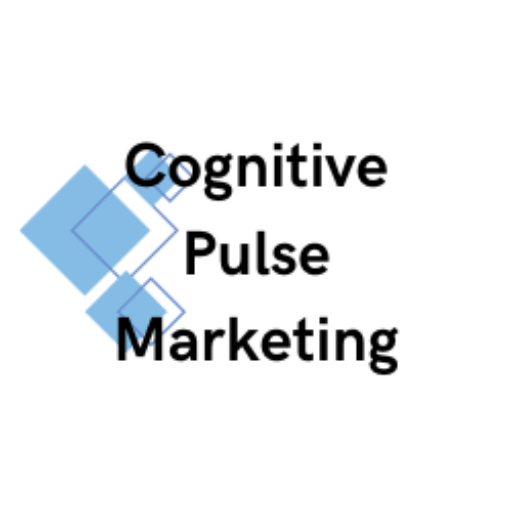With so many people turning to the internet to find mental health services, ranking higher on Google can significantly impact your practice’s growth. However, optimizing your website for search engines—also known as Search Engine Optimization (SEO)—requires more than just a basic understanding of the web. It involves a strategic approach tailored to the unique needs of your therapy practice.
In this post, we’ll explore actionable SEO strategies that can help your therapy practice rank higher on Google and attract more clients.
1. Understand and Use Relevant Keywords
Keywords are the phrases potential clients use when searching for therapy services online. Identifying and incorporating the right keywords into your website’s content is crucial for ranking higher on Google.
- Research Keywords: Use tools like Google Keyword Planner or Ubersuggest to find keywords related to your services. For example, if you specialize in cognitive-behavioral therapy in New York, relevant keywords might include “cognitive-behavioral therapy NYC” or “CBT therapist New York.”
- Use Long-Tail Keywords: These are more specific phrases like “anxiety therapy for teens in Los Angeles.” Long-tail keywords often have less competition and attract more targeted clients.
- Incorporate Keywords Naturally: Place your keywords in strategic areas such as page titles, headings, meta descriptions, and within your content. However, avoid keyword stuffing—your content should read naturally and provide value to your readers.
2. Optimize Your Website for Local SEO
Local SEO is particularly important for therapists, as most clients will search for services within their area. Optimizing your website for local search can help you connect with potential clients nearby.
- Claim Your Google My Business Listing: Ensure your Google My Business profile is complete, with accurate information such as your practice’s name, address, phone number, and hours of operation. This helps you appear in local search results and Google Maps.
- Include Location-Specific Keywords: Integrate location-based keywords into your website’s content, such as “therapy services in San Francisco” or “marriage counseling in Miami.”
- Get Listed in Local Directories: Submit your practice to local online directories like Yelp, Healthgrades, and Psychology Today. Ensure your information is consistent across all platforms to improve your local SEO.
3. Create High-Quality, Informative Content
Content is king when it comes to SEO. Providing valuable, informative content not only helps improve your search rankings but also establishes you as an authority in your field.
- Write Blog Posts: Regularly publish blog posts on topics that resonate with your audience, such as “How to Manage Anxiety” or “The Benefits of Mindfulness in Therapy.” Ensure your posts are well-researched, informative, and incorporate relevant keywords.
- Create Service Pages: Each service you offer should have its own dedicated page. For instance, if you offer individual therapy, couples counseling, and group therapy, create separate pages for each. This allows you to target specific keywords and provides clear information to potential clients.
- Use Multimedia: Enhance your content with images, videos, and infographics. Visual content can improve user engagement and is also favored by search engines.
4. Optimize Your Website’s Technical SEO
Technical SEO refers to the backend elements of your website that affect its performance in search engines. A well-optimized site not only ranks higher but also provides a better user experience.
- Improve Page Speed: Slow-loading websites can frustrate users and harm your rankings. Use tools like Google PageSpeed Insights to identify and fix speed issues.
- Ensure Mobile-Friendliness: With more people searching on mobile devices, having a mobile-responsive website is crucial. Make sure your site is easy to navigate on smartphones and tablets.
- Use Clear, Descriptive URLs: Your URLs should be simple and include relevant keywords. For example, instead of “yourwebsite.com/page1,” use “yourwebsite.com/anxiety-therapy.”
5. Build Backlinks from Reputable Sources
Backlinks—links from other websites to yours—are a key factor in how Google determines your site’s authority and relevance. The more high-quality backlinks you have, the better your chances of ranking higher.
- Write Guest Posts: Contribute articles to reputable websites and blogs in the mental health industry. Include a link back to your site within the content or author bio.
- Network with Local Businesses: Establish relationships with other local businesses, such as doctors’ offices or wellness centers, and ask if they can link to your site from theirs.
- Participate in Online Communities: Engage in online forums, Q&A sites like Quora, or social media groups related to mental health. When appropriate, share links to relevant content on your site.
6. Monitor and Adjust Your SEO Strategy
SEO isn’t a one-time effort; it requires ongoing monitoring and adjustments to stay effective.
- Use Google Analytics: Track your website’s traffic, user behavior, and conversions. This data can help you understand what’s working and where you need to make improvements.
- Keep Up with SEO Trends: SEO best practices can change over time as search engines update their algorithms. Stay informed about the latest trends and adjust your strategy accordingly.
- Test and Optimize: Continuously test different elements of your SEO strategy, such as headlines, meta descriptions, and content formats, to see what resonates best with your audience.
Improve your SEO to Rank your Therapy Practice on Google
By implementing these SEO strategies, your therapy practice can improve its visibility on Google, attract more clients, and establish a stronger online presence. Remember, SEO is an ongoing process that requires patience and persistence. However, the results—more clients finding and choosing your practice—are well worth the effort.
Start optimizing your website today, and watch as your therapy practice begins to climb the search engine rankings, bringing you closer to the clients who need your services the most.
